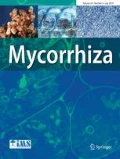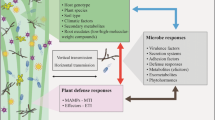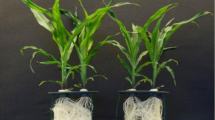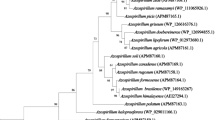Abstract.
Eighteen isolates, comprising three putative Pisolithus species from eastern and central Australia, were screened for resistance to NaCl during growth in axenic culture. Biomass yield for most isolates showed a decline with increasing NaCl up to 200 mM; however, only five isolates reached an EC50 point (effective concentration inhibiting growth by 50%) below 200 mM NaCl. Most Pisolithus isolates were thus found to be resistant to NaCl at concentrations found in very saline soils. Of five isolates screened for Na2SO4 resistance, none reached an EC50 point below 100 mM. While intraspecific variation was evident in the resistance of isolates to both salts, no obvious patterns of interspecific variation were observed. The data thus indicate that isolates of the three Australian Pisolithus species are broadly resistant to salinity and may represent useful ectomycorrhizal inoculants for outplanting of compatible, salt-resistant host trees at saline sites.
Similar content being viewed by others
Author information
Authors and Affiliations
Additional information
Electronic Publication
Rights and permissions
About this article
Cite this article
Chen, D.M., Ellul, S., Herdman, K. et al. Influence of salinity on biomass production by Australian Pisolithus spp. isolates. Mycorrhiza 11, 231–236 (2001). https://doi.org/10.1007/s005720100126
Accepted:
Issue Date:
DOI: https://doi.org/10.1007/s005720100126




